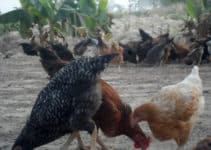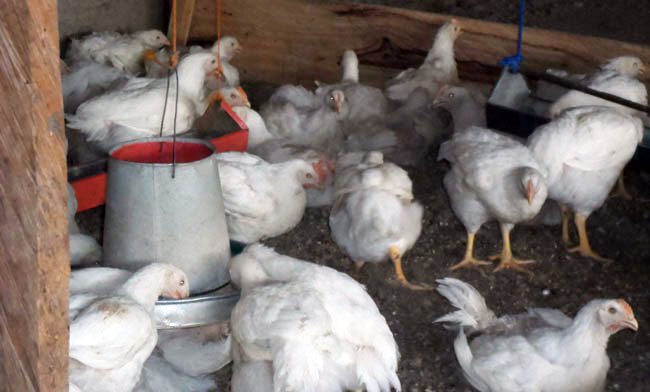Reducing Antibiotic Use in broilers: Natural Ways to Keep Your Birds Healthy.
Antibiotic resistance is a growing concern in both human and animal health. For poultry farmers, the reliance on antibiotics to prevent and treat diseases in broilers is a practice that has been ingrained for decades.
However, with increasing regulations, consumer demand for antibiotic-free meat, and environmental concerns, many poultry farmers are looking for alternative ways to maintain the health of their flocks.
The good news is that reducing antibiotic use in broilers doesn’t mean compromising the health of your broilers. There are several natural practices and strategies that can help keep your birds healthy and thriving, without the need for antibiotics.
In this article, we will explore alternative health practices, management strategies, and natural remedies that can significantly reduce the need for antibiotics, while improving the overall well-being of your poultry and the environment they inhabit.
The Need for Reducing Antibiotic Use in Broilers Farming
The Problem with Antibiotic Overuse
Antibiotics have long been a cornerstone of poultry farming, used both for disease prevention and treatment.
However, the overuse and misuse of antibiotics in poultry farming has led to several significant issues:
- Antibiotic resistance: Overuse of antibiotics in poultry farming can lead to the development of antibiotic-resistant bacteria, which can then be transmitted to humans through the food chain.
- Environmental impact: Antibiotics excreted by poultry can contaminate the environment, leading to pollution and contributing to the development of resistant bacteria in soil and water.
- Consumer concerns: Increasingly, consumers are demanding antibiotic-free meat. This shift in consumer preference is motivating farmers to seek alternatives to traditional antibiotic use.

Recommended for you:
Understanding the Cause of Poultry Diseases and What to Do If Your Chickens Are Sick
Poultry Diseases That Affect Humans, And How to Protect Yourself against Them.
7 Key Benefits of Charcoal to Poultry Farming
Reducing antibiotic use in broilers is not just a regulatory requirement but also a response to growing concerns about public health and the environment.
Natural Ways to Keep Your Broilers Healthy
1. Proper Management Practices
Good management practices are the foundation of any healthy poultry operation. Healthy birds are less likely to become sick, reducing the need for antibiotics.
Here are some effective management strategies that you can use in reducing antibiotic use in broilers and to promote the overall well-being of your flock:
2. Biosecurity Measures
Prevention is always better than cure. Biosecurity is essential in preventing the introduction and spread of diseases.
By implementing strict biosecurity measures, you can reduce the risk of infections in your flock thereby reducing antibiotic use in broilers farming.
- Quarantine new birds: Isolate any new birds or equipment before they are introduced to your flock.
- Sanitize your equipment: Regularly clean and disinfect feeders, waterers, and all poultry housing to reduce the spread of pathogens.
- Control pests: Rodents and wild birds can carry diseases that infect your chickens. Keep your poultry house free of pests.
Recommended for you:
Why I’m Excited about My Next Batch of Poultry birds
5 Important Ways You Can Use To Reduce Antibiotics Resistance on Your Farm
8 Important Poultry Items and Equipment You Need For a Successful Farming Experience
3. Good Nutrition
A balanced diet is critical for maintaining the health of your broilers. Providing your birds with high-quality feed that meets their nutritional requirements can strengthen their immune systems and make them less susceptible to disease.
- Protein and vitamins: Ensure your broilers get sufficient levels of protein, vitamins, and minerals in their diet. This will promote growth and bolster immune function.
- Digestibility: Use easily digestible feed ingredients to reduce the strain on the digestive system and prevent gut-related diseases.

4. Stress Reduction
Stress weakens the immune system of broilers and makes them more susceptible to disease. Managing stress through comfortable living conditions is key to keeping your birds healthy.
- Adequate space: Ensure your broilers have enough room to move around freely. Overcrowding leads to stress and increased chances of disease transmission.
- Climate control: Maintain the correct temperature, ventilation, and humidity levels in your poultry house to keep your birds comfortable.
- Minimize handling: Avoid excessive handling of broilers, as this can increase stress levels.
Natural Remedies and Supplements
In addition to good management practices, there are several natural remedies and supplements that can help boost the immune system of your broilers and reduce the likelihood of disease outbreaks.
1. Probiotics
Probiotics are beneficial microorganisms that support gut health. A healthy gut is essential for optimal nutrient absorption and immune function. Supplementing broiler diets with probiotics can help reduce the risk of gut-related diseases and improve overall health.
- Improved digestion: Probiotics help break down feed ingredients and enhance the digestibility of nutrients.
- Pathogen resistance: Probiotics compete with harmful bacteria in the gut, helping to prevent the overgrowth of pathogenic organisms.
2. Herbal Remedies
Certain herbs have been shown to have antimicrobial and immune-boosting properties. These can be incorporated into the diet or used as natural treatments for sick birds.
- Garlic: Known for its natural antibiotic properties, garlic can help prevent infections and boost the immune system.
- Oregano: Oregano contains compounds with antifungal and antibacterial properties, making it useful for fighting off infections.
- Thyme: Another herb with antimicrobial properties, thyme can help prevent respiratory infections in broilers.
3. Essential Oils
Essential oils derived from plants can be used to promote health and prevent disease in poultry. Some oils have natural antibacterial, antifungal, and antiviral properties.
- Oregano oil: Oregano oil has strong antimicrobial properties and can help control bacterial infections in broilers.
- Tea tree oil: Tea tree oil can be used to treat external parasites like mites and lice, reducing the need for chemical treatments.
- Eucalyptus oil: Eucalyptus oil is known for its ability to support respiratory health and is particularly helpful in managing respiratory diseases in poultry.
Recommended for you:
8 Proven Ways On How to Starts and Maintain A Poultry Farm
8 Ways You Can Easily Sale Your Broilers during the Christmas Festive Period
Understanding the Economics of Feed Intake, Weight Gain and Time-Frame in Rearing Broilers
Improving Poultry Housing Conditions
Creating an optimal environment for your broilers is crucial for their health. Poor housing conditions can lead to a variety of health problems, which often require antibiotic intervention.
a. Ventilation
Proper ventilation helps maintain fresh air in the poultry house, preventing the buildup of harmful gases like ammonia. Good airflow also helps regulate temperature and humidity, creating a healthier environment for your broilers.
- Install fans or windows to improve airflow.
- Regularly check for signs of ammonia buildup and address it promptly by improving ventilation.
b. Cleanliness
Maintaining clean bedding, water, and feed is essential to reduce the spread of disease-causing organisms.
- Change bedding regularly to prevent the accumulation of waste and pathogens.
- Provide clean water and fresh feed to prevent the growth of harmful bacteria.
c. Vaccination Programs
Vaccination is an important preventative measure that can help reduce the need for antibiotics. By vaccinating your broilers against common diseases, you can significantly lower the risk of outbreaks and keep your flock healthy.
Poultry Vaccines
Vaccines are available for a wide range of poultry diseases, including avian influenza, Newcastle disease, and Marek’s disease. A well-planned vaccination program, tailored to the specific needs of your farm, can help reduce the need for antibiotics.
- Consult with a veterinarian to develop a vaccination schedule that suits your farm’s needs.
- Ensure proper handling and administration of vaccines to ensure maximum effectiveness.

Recommended for you:
How to Feed Your Noiler Chickens For Maximum Profits
Paralysis, Lameness in Broiler Chickens, Causes, Prevention and Treatment
6 Important Lessons I Learned About Raising Noiler Chickens
Integrated Pest Management
Pests such as rodents, flies, and wild birds can introduce diseases into your poultry flock. Implementing integrated pest management (IPM) practices can help reduce the risk of disease transmission and can help significantly in reducing antibiotics use in broilers.
1. Biological Control
Using natural predators or other biological agents to control pests can help maintain a healthier environment for your broilers.
- Introduce beneficial insects like ladybugs to control harmful insect populations.
- Use nematodes to control larvae and pest insects in bedding.
2. Mechanical and Physical Barriers
Physical barriers can prevent pests from entering the poultry house, reducing the need for chemical interventions.
- Install fly traps and rodent-proof fencing.
- Seal cracks and gaps in the poultry house to prevent rodents and wild birds from entering.
Conclusion
Reducing antibiotic use in broilers or poultry farming in general is not only possible but also beneficial for the long-term health of your birds, your farm, and the environment.
By implementing good management practices, improving housing conditions, providing natural supplements, and maintaining a robust vaccination program, you can create a sustainable and healthy poultry operation.
The shift away from antibiotics is not about making life harder for farmers, but rather about embracing smarter, more natural practices that will ensure the future of poultry farming is both healthy and sustainable.
The time to act is now – reducing antibiotic use in broilers is not only an ethical choice but a practical one that will keep your broilers and the planet healthier for generations to come.







